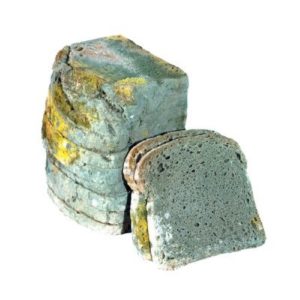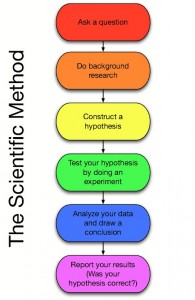Today, February 14th, Sir Alexander Fleming is credited with discovering penicillin in 1929, but many scientists and physicians before him left a literal bread trail to be followed. I’m actually surprised that it took until 1929 to realize that penicillin could kill some bacteria! Why? Because all the way back in ancient Egypt, moldy bread was being used to treat wounds around 2650 BC. During this time in history, the physicians did not study “why” something seemed to work, they just kept doing it “if” it did work… the trial and error method. (Can you imagine being the first person that received moldy bread for their wounds!?! LOL!) So, literally “penicillin” had been used as an antibiotic for thousands of years, they just didn’t call it “penicillin”! So why did it take so long to identify this mold and its benefits? 
I think that is the valuable lesson to learn here is to understand why it took thousands of years to “discover” penicillin. A fun experiment would be to grow mold with your children. Here is a link to one to do with your children. http://explorable.com/mold-bread-experiment (Important Note from the experiment: some people are allergic to mold! If this is the case, do not pick the Mold Bread Experiment. Always wear gloves and mask, wash your hands, and don’t eat or drink whilse you are performing this study.) Discuss the drawbacks of the “trail and error” approach of the ancient world and the benefits of scientific inquiry and the scientific method. For anyone that likes to create a tactile work for children to learn with, here is a great concept map of the scientific method that we used. We printed this twice. The first copy we cut each oval out and laminated them individually. The children use these ovals to build the model for the scientific method. The second print out we laminated whole creating the control (answer key) for the work.
http://schurger-science.wikispaces.com/file/view/scientificmethod.jpg/84615519/scientificmethod.jpg
This topic is covered in Apologia General Science in the first Module.
Until next time…
